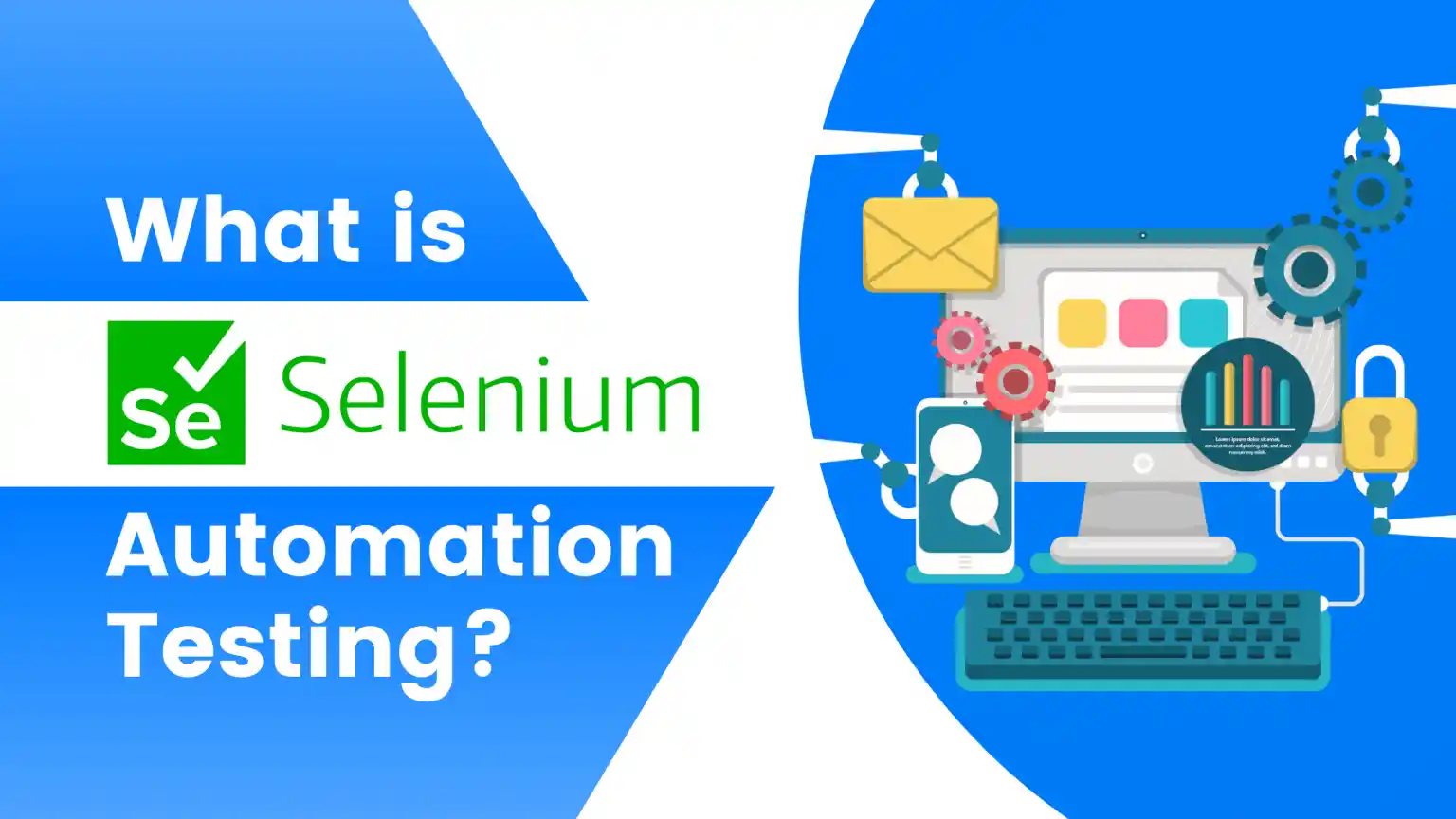Differences Between Selenium and Other Automation Tools!
Automation has become an essential part of software development and testing, and numerous tools that cater to this requirement are available in the market. Selenium is one of the most popular and widely used automation tools. However, with increasing automation tools emerging, it becomes imperative to understand the differences between Selenium and other automation tools and choose the right one for your business.
This blog will discuss the key differences between Selenium and other automation tools and why Selenium is the preferred choice for most organizations.
What Is Selenium, And Why Is It Important?
Selenium is a special set of tools that helps people test websites to ensure they work well. It can be used with many different computer languages, like Java, Python, and C#, and it works with many different web browsers like Chrome, Firefox, and Safari. This makes Selenium very flexible and useful for many people and companies.
When building websites, people want to ensure everything works properly before showing it to the world. That’s where Selenium comes in! It can do repetitive tasks for the developers and testers, like clicking buttons and filling out forms, to ensure the website works properly.
Selenium also has many different tools and features, like Selenium WebDriver and Selenium Grid, that help people organize and manage their testing. It even helps people keep track of their results and fix any problems they find.
Because Selenium is open source, many people use it and always work to improve it. This means many resources are available for people who need help or want to learn more about Selenium.
Overall, Selenium is a very helpful tool for testing websites and ensuring they work properly. Many companies use it, and it is always improving, thanks to its large community of users.

Why Is Selenium The Preferred Choice For Automation Testing?
For several reasons, Selenium has become the preferred choice for automation testing for many organizations. From being open-source and free to use to its wide compatibility and support for multiple programming languages, Selenium offers many benefits for organizations of all sizes.
Open-Source And Free:
One of the biggest advantages of Selenium is that it is an open-source tool that is free to use and available to everyone. This makes it an affordable solution for organizations of all sizes.
Widely Supported:
Selenium has a large and active community of developers and users who constantly work towards improving its functionality and performance. This means that a wealth of resources is available for users who need help or want to Learn Selenium Automation.
Cross-Platform Compatibility:
Selenium supports a wide range of operating systems, including Windows, Mac, and Linux, making it a platform-independent tool. This means that organizations can use Selenium on their preferred operating system without having to worry about compatibility issues.
Supports Multiple Programming Languages:
Selenium provides a platform-independent API to write test scripts in multiple programming languages, including Java, Python, C#, etc. This means that organizations can choose the programming language that best suits their needs and expertise.
Supports A Wide Range Of Browsers:
Selenium supports a wide range of browsers, including Chrome, Firefox, Safari, Internet Explorer, and more, making it a versatile and flexible choice for automation testing.
With its powerful features, versatility, and growing community of users, Selenium is the go-to choice for organizations looking to automate their testing processes and improve their software development and testing efforts. Whether you’re a small startup or a large enterprise, Selenium is the ideal solution for your automation testing needs.
Differences Between Selenium And Other Automation Tools
When it comes to automation testing, many tools are available in the market, each with its unique features and capabilities. Among these, Selenium is one of the most widely used automation tools significantly. This is due to the fact that it is easy to learn Selenium without coding. However, it’s important to understand the differences between Selenium and other automation tools to choose the right one for your needs.

UFT/QTP:
UFT (Unified Functional Testing) and QTP (Quick Test Professional) are commercial tools that are widely used for automation testing. Unlike Selenium, they are not open-source and require a license to use. UFT/QTP supports a wide range of technologies and provides a graphical user interface for automation testing, making it easier for users with limited programming knowledge to use. Compared to Selenium, UFT/QTP is more expensive and does not support as many programming languages.
TestComplete:
TestComplete is another commercial automation tool that is widely used for automation testing. Like UFT/QTP, it provides a graphical user interface for automation testing, making it easier for users with limited programming knowledge to use. TestComplete supports a wide range of technologies, including web, mobile, and desktop applications. However, it only supports as many programming languages as Selenium, which is more expensive than Selenium.
Appium:
Many people widely use Appium, an open-source tool, for the automation testing of mobile applications. Appium is specifically designed for mobile applications, unlike Selenium, which is primarily used for web applications. Appium supports a wide range of mobile platforms, including iOS and Android, and provides a platform-independent API to write test scripts in multiple programming languages. Compared to Selenium, a limitation of Appium is that it does not support automation testing of web applications.
Watir:
Watir is an open-source tool specifically designed for the automation testing of web applications. It supports many browsers and provides a platform-independent API to write test scripts in multiple programming languages. Water is similar to Selenium in terms of functionality and features, but it has a smaller user community than Selenium.
Robot Framework:
Robot Framework is an open-source tool widely used for automation testing, including web applications. It supports various technologies and provides a platform-independent API to write test scripts in multiple programming languages. Robot Framework is similar to Selenium in terms of functionality and features but has a smaller user community than Selenium.
The selection of the right automation tool depends on the organisation’s specific requirements and the application type under test. A thorough understanding of Selenium and other automation tools can assist organizations in making informed decisions and selecting the appropriate tool.
The Pitfalls Of Automation Testing And How Selenium Testing Overcomes Them!
Using automation tools for testing software development comes with several disadvantages, despite automation testing being a crucial aspect. Some of the common challenges faced by organizations include the following:
Cost:
Some automation tools, such as UFT/QTP and TestComplete, are commercial and require a license. Especially for small and medium-sized businesses, this can represent a significant cost.
Learning Curve:
Automation testing tools can be complex from time to time. Due to its complexity, it require a certain level of technical expertise to use effectively. This can make it difficult for organizations to adopt automation testing, especially if they need more technical resources.
Maintenance:
Automation testing scripts need to be regularly updated and maintained to keep up with changes in the application being tested. This can be time-consuming process and certainly requires a significant investment of resources.
False Positives:
Automation testing tools can produce false positives, which are test results that indicate a problem when there isn’t one. As a result, this can waste valuable time and resources fixing problems that don’t actually exist.
Selenium Is Better Than Other Automation Tools Because:
- It’s open-source and free, making it affordable for all organizations.
- It’s widely supported, with a large community always improving it.
- It supports multiple programming languages.
- It supports a wide range of browsers.
Overall, Selenium provides efficient and cost-effective solutions for automation testing. That’s why it’s the preferred choice for most organizations undeniably.
Conclusion
In conclusion, Selenium is the preferred choice for most organizations for testing. This is due to its open-source and free nature, wide support and compatibility, and support for multiple programming languages. However, the choice of automation tool depends on the specific requirements of the organization and the type of applications being tested.
If you are looking to learn Selenium and enhance your automation testing skills, consider enrolling in a Selenium Training in Chennai by Infycle Technologies. With a plethora of institutes offering Selenium testing training in Chennai, you can easily find a program that suits your needs and budget.





